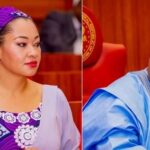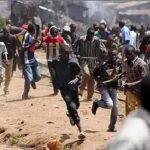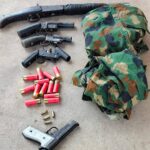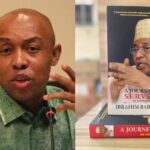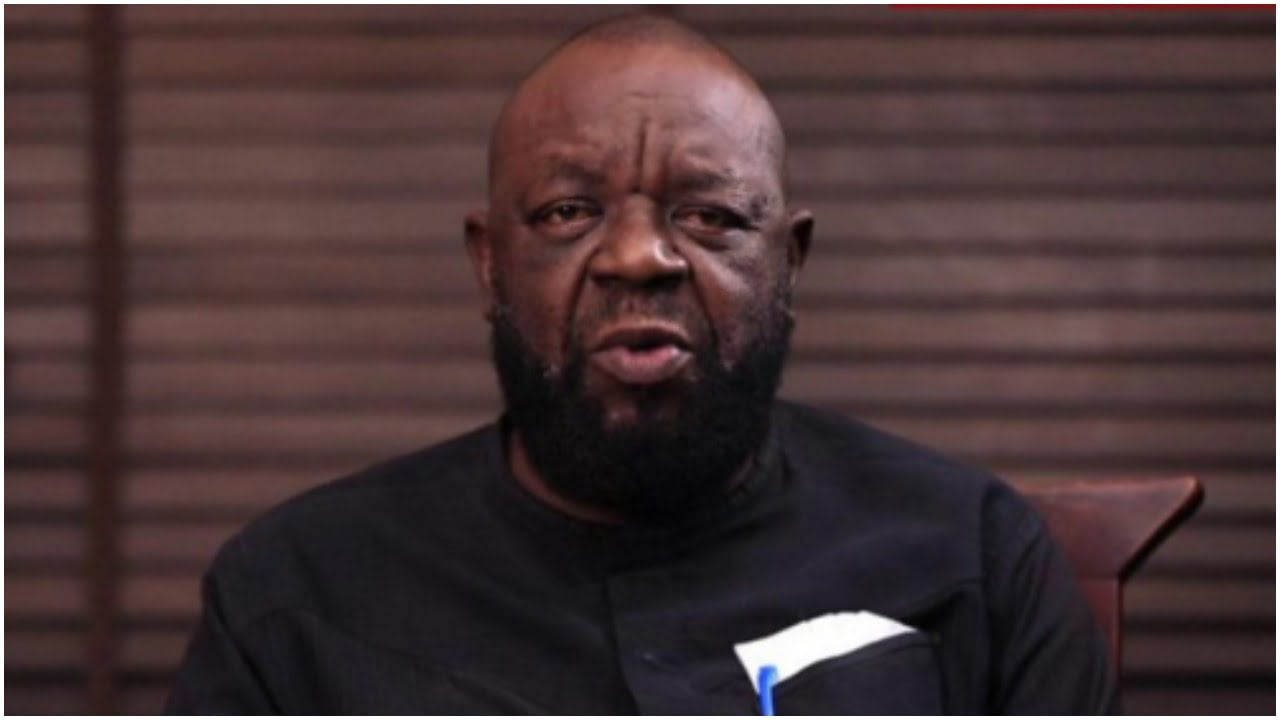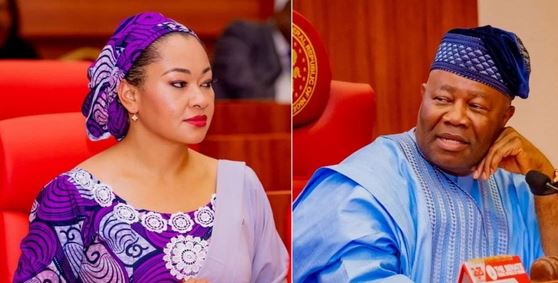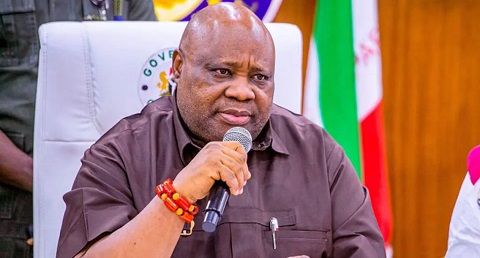The legal team of Nnamdi Kanu, leader of the Indigenous People of Biafra, IPOB, has reacted to a recent ruling affirming the group as a terrorist organization.
Ejimakor has now filed a motion for an injunction against the Court of Appeal’s judgment.
Kanu’s lead counsel, Aloy Ejimakor, said the motion is aimed at checking the imminent danger of deploying the judgment as a cover to unleash extrajudicial killings in the Southeast.
In January 2024, the Abuja division of the Court of Appeal affirmed an order by Justice Abdu Kafarati of the Federal High Court, Abuja, proscribing IPOB and designating it a terrorist organisation.
In its judgment, a three-member panel of the court unanimously agreed with the lawyer for the Federal Government, Oyin Koleosho, that the state acted lawfully in proscribing IPOB.
The panel insisted that IPOB’s activities posed a threat to Nigeria’s continued existence and the security of its citizens.
However, IPOB declared that the judgment would not stand because it would be resisted.
Kanu has now filed the motion for an injunction to challenge the proscription.
According to Ejimakor: “UPDATE: Yesterday, we filed a motion for an injunction against the Court of Appeal judgment that affirmed the infamous proscription of IPOB.
“The motion is aimed at checking the imminent danger of deploying the judgment as a cover to unleash extrajudicial killings in the Southeast.”
In the motion, Kanu’s lawyers sought an:
“ORDER of injunction restraining the Respondent, its agents, associates, privies, representatives, any agency of the Federal Republic of Nigeria, and/or persons howsoever described or called, including the military and paramilitary outfits, operations, and commands, from giving effect to, acting upon, or in any manner carrying into effect the judgment of the Court of Appeal, Abuja Division, coram: Hama Akawu Barka, O. E. Abang, and O. O. Oyewunmi, JJCA, delivered in Appeal No. CA/ABJ/214/2018 between the Appellant and the Respondent on the 30th day of January 2025, pending the hearing and determination of the appeal lodged on the 7th day of February 2025 against the said judgment before the Supreme Court of Nigeria.
“An order that all the parties herein and their agents, associates, privies, representatives, any agency of the Federal Republic of Nigeria, and/or persons howsoever described or called, including the military and paramilitary outfits, operations, and commands, maintain the status quo as it existed before the judgment of the Court of Appeal, Abuja Division, coram: Hama Akawu Barka, O. E. Abang, and O. O. Oyewunmi, JJCA, delivered in Appeal No. CA/ABJ/214/2018 between the Appellant and the Respondent on the 30th day of January 2025, pending the hearing and determination of the appeal lodged on the 7th day of February 2025 against the said judgment before the Supreme Court of Nigeria.”
Ejimakor also pointed out that by the judgment of the Court of Appeal delivered on the 30th of January 2025, the Court of Appeal affirmed the declaratory decision of “the Federal High Court, Abuja, per Abdul Kafarati, C.J., declaring the Appellant and all indigenes of Igboland a terrorist organisation and proscribing them therefore.”
He added that the Appellant is utterly dissatisfied with the said judgment and has “consequently filed a Notice of Appeal on the 7th day of February 2025 to the Supreme Court containing five (5) grounds of appeal against the said judgment.”
The lead counsel also highlighted the team’s appeal against the judgment to include:
“That the order obtained ex parte, proscribing the Appellant and declaring the Appellant a terrorist organisation, breached and infringed on the Appellant’s right to fair hearing guaranteed under Section 36 of the Constitution of Nigeria, 1999, which fair hearing rights are non-derogable under any circumstances, including national security and the like.
“That, in the circumstances of the case, the term or phrase ‘Judge in Chambers’ does not mean ex parte proceedings and that the failure to allow the Appellant to make representations before the Federal High Court, during which time the Respondent was heard ex parte and an order made proscribing the Respondent, constitutes a flagrant violation of the right of the Appellant to a fair hearing, particularly when the order obtained ex parte has far-reaching criminal effects on the Appellant contrary to Section 36 (5) of the Constitution of the Federal Republic of Nigeria, which presumes the Appellant innocent until a full trial is conducted and the Appellant is found guilty.
“That the order proscribing the Appellant as a terrorist organisation and obtained ex parte violates the Appellant’s right against discrimination by subjecting the Appellant to disabilities and restrictions on the basis of ethnic inclinations and political opinion centred on self-determination, which is permissible under Section 42 of the Constitution of Nigeria, 1999, and Article 20 of the African Charter on Human and Peoples’ Rights (Ratification and Enforcement) Act Cap. A9 LFN 2004.
“That, despite the claims that the proceedings leading to the proscription of the Appellant as a terrorist organisation are of a civil nature, the standard of proof in circumstances where criminal allegations of terrorism, murder or threats thereof, and bomb-making exist, in accordance with Section 138 of the Evidence Act, 2011, was not and could not have been proven by affidavit evidence in support of an ex parte application.
“That the trial court and the Court of Appeal usurped the functions of the executive arm of government of Nigeria by proclaiming a state of emergency by way of national security, under which the rights of the Appellant to a fair trial were erroneously derogated.”



